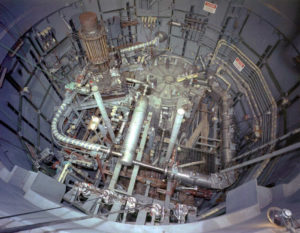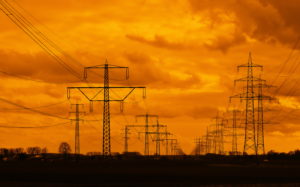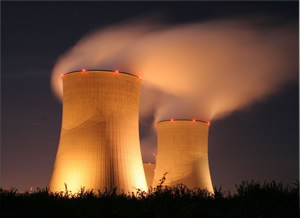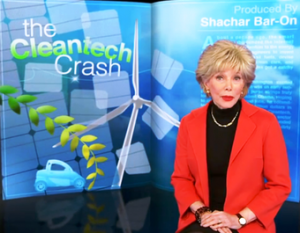36 item(s) were returned.
The New York City Council passed legislation in April 2019 to mandate that all existing buildings 25,000 square feet or larger must reduce their greenhouse gas emissions by 40% by 2030 and by 80% by 2050. This retrofit bill (Local Law 97) was part of a package of bills called the Climate Mobilization Act. There are 50,000 buildings in New York City that the law applies to, and they are responsible for about 30% of New York City’s total greenhouse gas emissions—”a big number for a small subset of buildings,” said Costa Constantinides, the New York City Council Member who… [more]
View InsightCo-Executive Director
The Institute for Carbon Removal Law and Policy, American University
Nuclear power plants—which emit zero greenhouse gas emissions and have very low emissions during their entire lifecycle—can contribute significantly to addressing climate change. However, many reactors have been retired, with more to follow. In many cases, these reactors are being supplanted by natural gas, which can result in a large increase in greenhouse gas emissions, especially when methane leakage is taken into account. As the Union of Concerned Scientists recently concluded, “the resulting emissions set back national efforts to achieve needed emissions reductions.” Many energy experts believe that a commitment to thorium-based nuclear reactors might help to turn the tide… [more]
View InsightChief Operating Officer
Schweitzer Engineering Laboratories, Inc.
We read in the news weekly, sometimes daily, about advanced, persistent cybersecurity threats from nation-states, and we are constantly evolving our thinking to innovate against these threats. Cybersecurity is a critical component for the secure and reliable operation of electric power systems and an important priority for Congress. The Senate held a hearing two weeks ago on the status and outlook for cybersecurity efforts in the energy industry. One of the issues most critical to the cybersecurity challenges we face in the energy industry today is the act of balancing regulation and innovation in addressing cybersecurity threats. There are clear and… [more]
View InsightNASA has used thermoelectric energy, or the conversion of waste heat to electricity, for decades to power spacecraft and the Mars Science Laboratory Rover. However, thermoelectric energy has attracted minimal attention in the alternative-energy world due to its limited commercial viability, until recently. Last year, Michigan State University (MSU) with the support of the Lawrence Berkley National Lab developed a new class of thermoelectrics using a compound called tetrahedrite that is believed to be more cost-effective and has the potential for everyday use. One start-up finding success building on the findings from MSU is Alphabet Energy. They have developed a stand-alone… [more]
View InsightVice President, Research & Policy Analysis and Chief Economist
America's Natural Gas Alliance
The Obama administration recently announced forthcoming standards for methane emissions from new and modified oil and gas production sources, despite saying “voluntary efforts to reduce emissions in a comprehensive and transparent manner hold the potential to realize significant reductions in a quick, flexible, cost-effective way.” The natural gas industry has already dramatically reduced methane emissions even as production and use have soared. New regulations will take too much time and yield too few benefits, compared with a collaborative approach. Because methane is the product we sell there is great motivation to capture as much as possible. Innovations have led to… [more]
View InsightProfessor of Physics
City College of the City University of New York
The low cost and abundance of natural gas is rapidly causing utility companies to replace coal plants and aging nuclear power plants with gas-fired power plants. The widespread transition to natural gas highlights a need for the nuclear industry to focus on innovation as a means of regaining its competitiveness. Yet innovation requires long-term investment, and the nuclear sector faces structural difficulties in procuring the necessary funds to develop promising technologies. Republicans, who now control both houses of Congress, draw a strong distinction between basic research, which they generally accept as a federal responsibility, and applied research, which they believe… [more]
View InsightPrincipal
NorthBridge Energy Partners, LLC
The EPA’s proposed Clean Power Plan, meant to reduce carbon by 30% by 2030, is expected to be accomplished through a combination of improving existing power plants, switching to cleaner generation, boosting renewables, and improving energy efficiency. It is more than likely that the global economy’s ability to innovate and drive economies of scale will significantly ease this transition, providing as yet unknown but superior alternatives. Consider this: the wind and solar industries barely existed five years ago. Today, costs of wind have fallen by 58% in the last five years, and the price of installed solar has plummeted by… [more]
View InsightPrincipal
Perelman Group
Jesse Jenkins (MIT) and Matthew Stepp (Center for Clean Energy Innovation) are among a number of policy analysts who have called for a “tax and invest” strategy to combat global warming. That is: A modest tax on carbon emissions would be invested in government research, development, and innovation-promotion programs to commercialize new alternative energy technology. But in a recent article I have argued there are at least four reasons to question whether typical government technology programs would be as cost-effective an investment as Jenkins and others claim: 1. The government role in innovation is neither necessary nor sufficient. Of the… [more]
View InsightSenior Policy Analyst
Information Technology and Innovation Foundation
Whether or not the world has all of the clean energy technologies it needs to dramatically cut greenhouse gas emissions is an important ongoing debate among the climate policy community. Buoyed by steep cost reductions for wind and solar power technologies during the past decade, proponents argue political will is the major factor holding clean energy back from dominating the global energy market. Critics counter that even with recent cost reductions clean energy still isn’t realistically competitive with fossil fuels everywhere without the help of unsustainable subsidies and contentious government mandates. The debate over whether clean energy is ready for… [more]
View InsightA recent “60 Minutes” segment essentially called the cleantech industry a failure, eliciting a flurry of criticisms defending the green technology sector. “Hoping to create innovation and jobs, [President Obama] committed north of $100 billion in loans, grants and tax breaks to cleantech. But instead of breakthroughs, the sector suffered a string of expensive tax-funded flops. Suddenly cleantech was a dirty word,” said “60 Minutes’” host, Lesley Stahl. One of the main criticisms against the CBS segment was that it conflated the cleantech venture capital sector of Silicon Valley with the Department of Energy’s loan guarantee program. The critics have… [more]
View Insight








